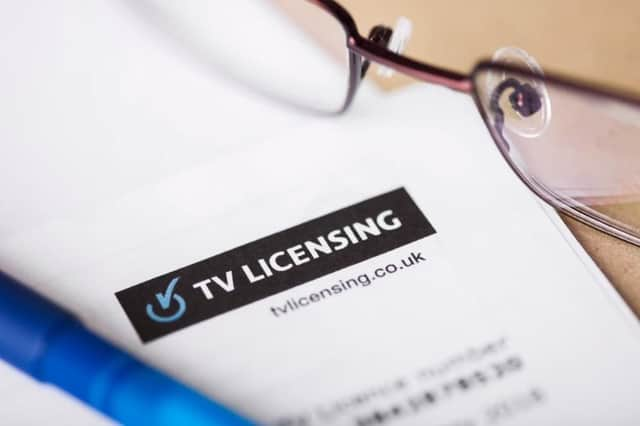Do you really need a TV license? Legal expert explains ahead of April fee increase


With another price hike on the way in April, pushing the fee from £159 per year to £169.50, many households may be considering their options when it comes to forking out for their TV license.
Here, a legal expert from The University of Law shares some advice to help TV owners understand when they need to purchase a licence, how much it costs, and the potential consequences of avoiding paying for a licence.
Do I really need a licence?
Advertisement
Hide AdAdvertisement
Hide AdHomeowners or tenants of a property who watch or record live programmes on any device (including computers and tablets), must have a TV license. The same goes for any programmes downloaded or viewed via BBC iPlayer.
The only time you don’t need a license is when watching non-BBC programmes with catch up services, videos, DVDs or Blu-Rays, or online videos on sites such as YouTube.
You only need one license per residence, which will cover everyone in that household.
How much will it cost me?
As of April1, the TV license fee is increasing from £159 per year to £169.50. There are options to pay this in an annual lump sum, or in monthly or quarterly instalments.
Advertisement
Hide AdAdvertisement
Hide AdThere is some good news for owners of black and white TVs, as the license fee here has remained the same at £53.50.
Am I exempt from paying for a licence?
There are some exemptions and discounts available in special circumstances, however it’s worth bearing in mind that if you were eligible, you would most likely have been informed about it.
If you are aged 75 years old or over and you, or your partner living at the same address receives pension credit, then you can apply for a free TV license.
It’s also worth looking into this if you live in a residential care home, supported housing or sheltered accommodation, as you may also qualify for a free license.
Advertisement
Hide AdAdvertisement
Hide AdThose who are blind or severely sight impaired may also be eligible for a 50 per cent discount, providing you can provide “appropriate evidence”.
What happens if I don’t have a licence?
Considering the UK TV license fee was found to be the fourth highest across Europe, it’s easy to understand why some may avoid paying it.
However, it’s important to stress that if you are caught out watching TV without a license you could be fine up to £1,000, plus legal costs and compensation incurred – which could end up an eye-watering amount.
If you know that you don’t need a license based on the above, the best approach is to inform TV Licensing through official channels.
Advertisement
Hide AdAdvertisement
Hide AdIf anything changes and you find yourself needing a license again, be sure to get back in touch to purchase one. Failing to do so will leave you at risk of being found guilty of evading the licensing fee and facing the fines.